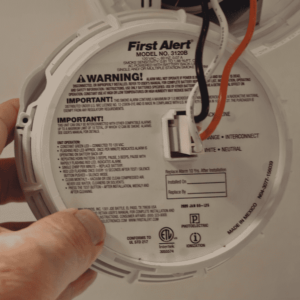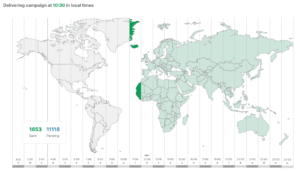 Let’s suppose that you have some book that is published through the Amazon publishing-on-demand platform (which very annoyingly is named “Kindle Desktop Publishing”). And let’s suppose (keep with me on this) that you actually would like to receive your author royalties for this book. It turns out that if you have an account with Wise Business, you can set things up to have a much better chance of actually receiving your royalties. Continue reading “Being smart about receiving book royalties from Amazon”
Let’s suppose that you have some book that is published through the Amazon publishing-on-demand platform (which very annoyingly is named “Kindle Desktop Publishing”). And let’s suppose (keep with me on this) that you actually would like to receive your author royalties for this book. It turns out that if you have an account with Wise Business, you can set things up to have a much better chance of actually receiving your royalties. Continue reading “Being smart about receiving book royalties from Amazon”
Picking a trusted place to back up your smart phone

Let’s imagine something that might be unlikely (stick with me on this) namely that you have a smart phone. Yes I realize that you may have an old-fashioned phone that is not a smart phone. But maybe it is an Android phone (yay!) or maybe it is an iPhone (some day you will migrate away to what I think is a better kind of smart phone, but I suppose no time soon). And in the event that you do have a smart phone, let’s suppose you like the idea of backing it up to some trusted place. What are the absolutely worst places to back up your smart phone (hint: probably you are right now backing it up to a place that is not a good place)? What is an example of a smart place to back up your smart phone? Continue reading “Picking a trusted place to back up your smart phone”
getting good use of your code-required smoke alarms

If your home was constructed in the past twenty years, it almost certainly has several code-required smoke alarms. You can see, at right, an example of this. The home that I discuss here has half a dozen of these First Alert model 3120B smoke alarms.
The point of this blog article is to help you make some actual meaningful use of your code-required smoke alarms, above and beyond their intended function which is to permit the building inspector to grant a “certificate of occupancy” for the newly constructed home. Continue reading “getting good use of your code-required smoke alarms”
Has your membership in a listserv been disabled due to “excessive bounces”?
(Updated November 25, 2023 to recognize that if your email service provider is bouncing the normal listserv postings, your email service provider may also have bounced the warning message that was sent to you about your email service provider bouncing the normal listserv postings.)
In recent days, dozens of members of our intellectual property listservs have received (or at least have been sent) email warnings that start like this:
Your membership in the mailing list <blah> has been disabled due to excessive bounces. The last bounce received from you was dated <recent date>. You will not get any more messages from this list until you re-enable your membership. You will receive 2 more reminders like this before your membership in the list is deleted.
If you received such an email warning, this is because (a) you belong to one or more of our listservs, and (b) you selected Microsoft (outlook) to be your email service provider. But of course another possibility is that you did not receive this warning email message, because your email service provider bounced the warning email message too. What should you do next? Continue reading “Has your membership in a listserv been disabled due to “excessive bounces”?”
Coyote carrying box marked “ACME”
Telling twelve thousand people about four free webinars

The map at right shows, in real time, our progress in letting twelve thousand people learn that they have an opportunity to attend four free-of-charge webinars about PCT forms. As you can see, some 1600 emails have been sent (light green shading) to people in Asia and Africa and eastern and central Europe. Just now, emails are being sent (dark green shading) to people in west Africa and parts of Greenland. Some 11000 emails are waiting to be sent to people in North and South America. Why did these emails not get sent all at once? Continue reading “Telling twelve thousand people about four free webinars”
What is “card testing”? What should you do about it?

 Yesterday, for the first time in the seven-year history of our OPLF shopping cart, somebody used our shopping cart for “card testing”. A fraudster in a foreign country had purchased a bundle of stolen credit card numbers, and wanted to determine which of the cards was still valid. Such a person will engage in “card testing”. The person tries to make purchases with the credit card numbers, using an online commerce site. Yesterday, the person chose our OPLF shopping cart. By the time that we had shut out the “card testing”, the fraudster had tested about 198 credit card numbers, and had found two of the cards to be valid. (This means the card holder had not yet canceled the stolen card number.)
Yesterday, for the first time in the seven-year history of our OPLF shopping cart, somebody used our shopping cart for “card testing”. A fraudster in a foreign country had purchased a bundle of stolen credit card numbers, and wanted to determine which of the cards was still valid. Such a person will engage in “card testing”. The person tries to make purchases with the credit card numbers, using an online commerce site. Yesterday, the person chose our OPLF shopping cart. By the time that we had shut out the “card testing”, the fraudster had tested about 198 credit card numbers, and had found two of the cards to be valid. (This means the card holder had not yet canceled the stolen card number.)
The service providers Woo and Stripe performed admirably in this incident.
How did we learn that the “card testing” was happening? What did we do in response? What permanent harm, if any, flowed from this incident? What protective step might we have taken earlier? Continue reading “What is “card testing”? What should you do about it?”
Please sign up for four webinars about inbound PCT forms
I will be presenting four webinars about inbound PCT forms. You can read about them here. Please sign up for all four webinars.
Looking back, two days after the demise of PAIR and EFS-Web
Today is Thursday, November 16. USPTO leadership shut down PAIR and EFS-Web at about 11:59 PM on Tuesday, November 14. We can reflect on things with two days’ perspective. Continue reading “Looking back, two days after the demise of PAIR and EFS-Web”
How many Patent Center bugs and missing features can one encounter in a single e-filing task?
Today I had to pay an Issue Fee. Let’s see how many Patent Center bugs and missing features I encountered in a single e-filing session in Patent Center, trying to pay an Issue Fee. Try to guess how many bugs and missing features were encountered. Continue reading “How many Patent Center bugs and missing features can one encounter in a single e-filing task?”

